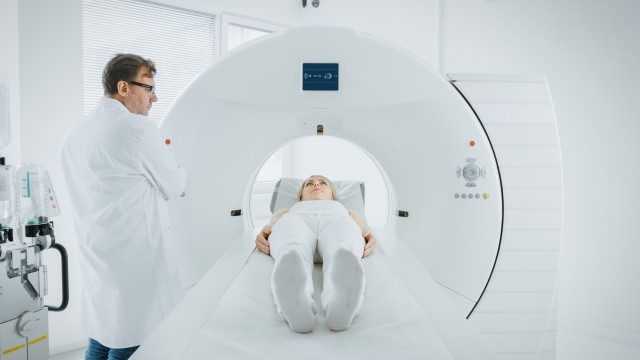Addressing problems with prostate cancer diagnosis
To diagnose prostate cancer, PSA (prostate specific antigen) levels in the blood are used as an initial screening test. If high levels are found, the usual care for men is a surgical prostate biopsy to test whether they are either cancer-free, have clinically significant cancer that requires treatment, or have clinically insignificant cancer that can be monitored without intervention.
Around 150,000 men a year in the UK receive to try to diagnose prostate cancer. Taking a biopsy can have many side effects, as it is a surgical intervention these can be severe. As not all men who have a biopsy will go on to have cancer or require treatment, these side effects are often without any benefit.
Identifying men who might safely avoid biopsy
The ‘Prostate MRI Imaging Study’ (PROMIS) looked at whether the use of a MRI scan before biopsy could identify men who might safely avoid the procedure. PROMIS was also trying to find out how accurate the MRI scan was in comparison to surgical biopsies at detecting clinically important cancers.

The study found that the use of MRI to triage men with high PSA levels could result in 27% fewer men needing to undergo biopsy, with fewer clinically insignificant cancers detected and treated. As the consequences of prostate treatment can be severe, reducing the number of people over-treated is essential.
Offering expertise in trial development
The PROMIS trial proposal was presented at the NCRI Prostate Group, with detailed feedback given on the aims, objectives and design of the trial, helping to improve these aspects. This resulted in funding being given by NIHR HTA from a very competitive diagnostics studies call.
Once the PROMIS study had been funded, further advice was sought from the NCRI Prostate Group before a funding application was submitted to Prostate Cancer UK, who then awarded a grant for biobanking alongside the PROMIS trial. This will be a very important validation of many academic and commercial biomarkers over the next few years and continue to aid in the delivery of early diagnosis for men with prostate cancer.
Impact on clinical practice
The impact of the PROMIS trail was seen rapidly with hospitals that already had the necessary equipment and expertise offering men MRI scans to see if a biopsy is needed. Elsewhere, hospitals looked to develop the capacity they need to do this as standard. Recently, the National Institute of Health and Care Excellence (NICE) have changed their guidelines to recommend MRI scans prior to biopsy. The PROMIS researchers are working with Prostate Cancer UK and others to develop training programmes and other tools to help clinicians implement the approach safely and effectively.
Impact has also been seen internationally, with the European Association of Urology and the American Urology Association also changing their guidelines to recommend pre-biopsy MRI.